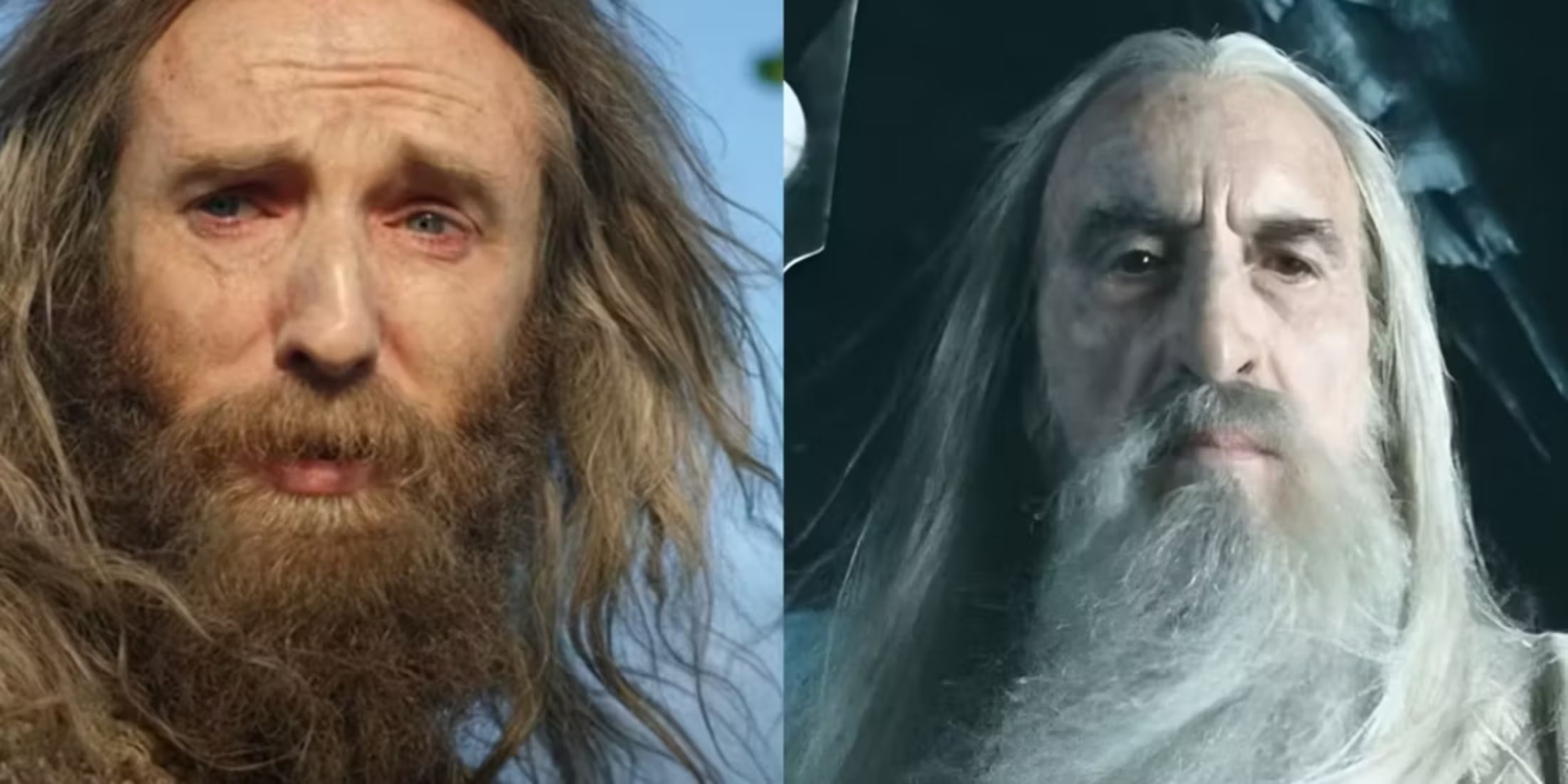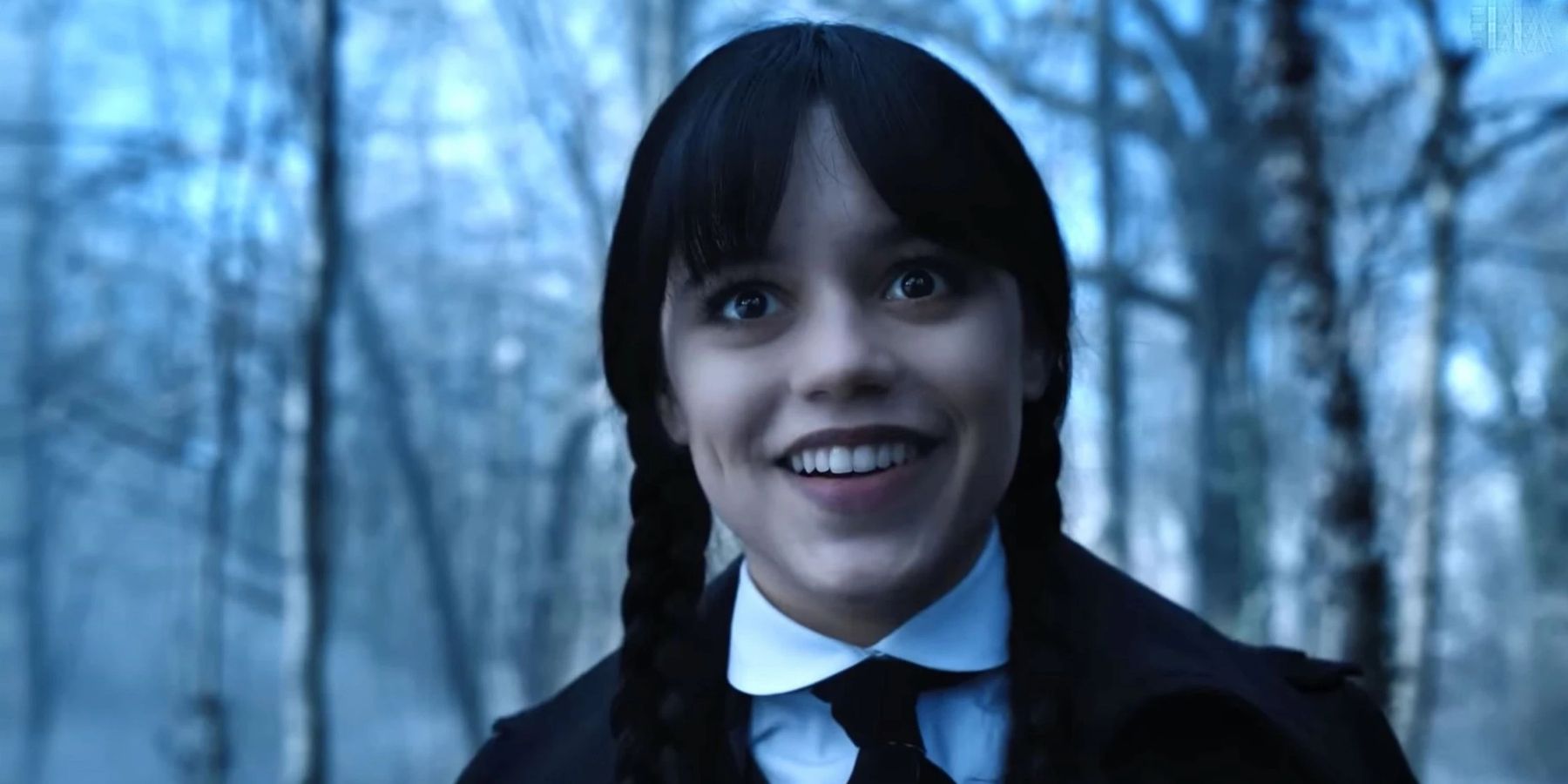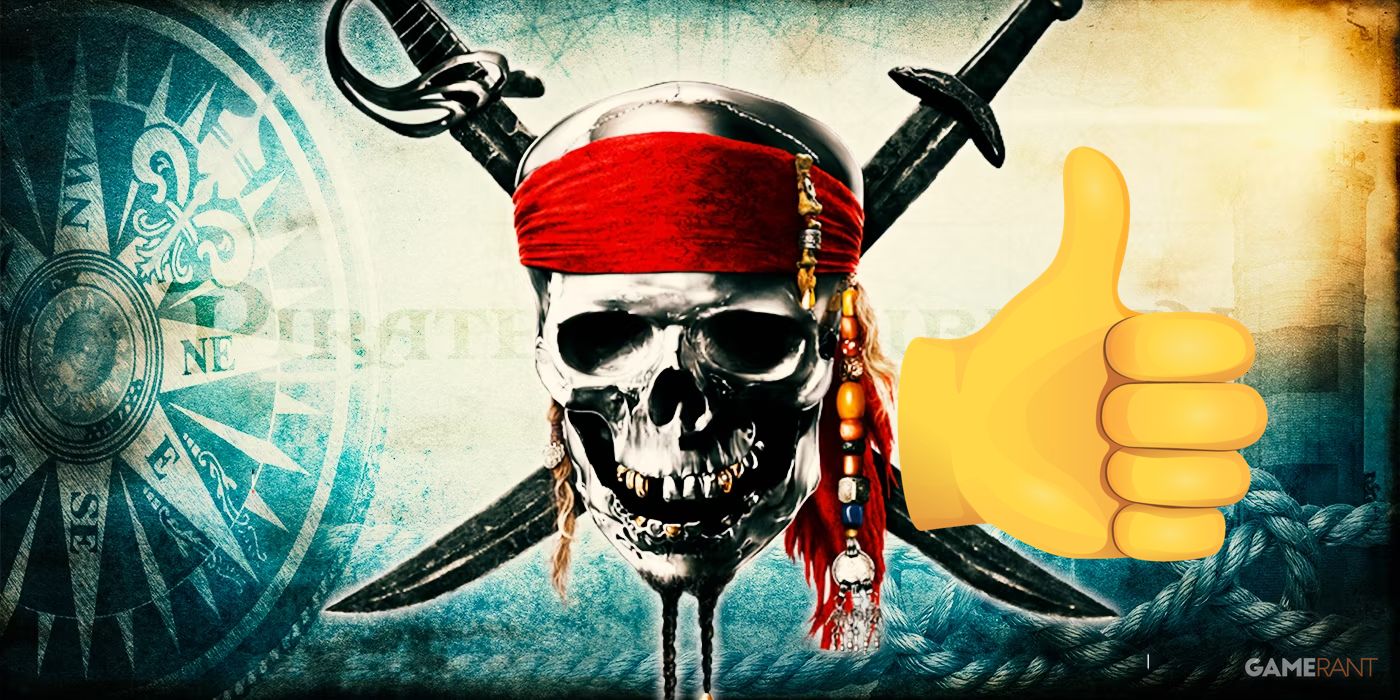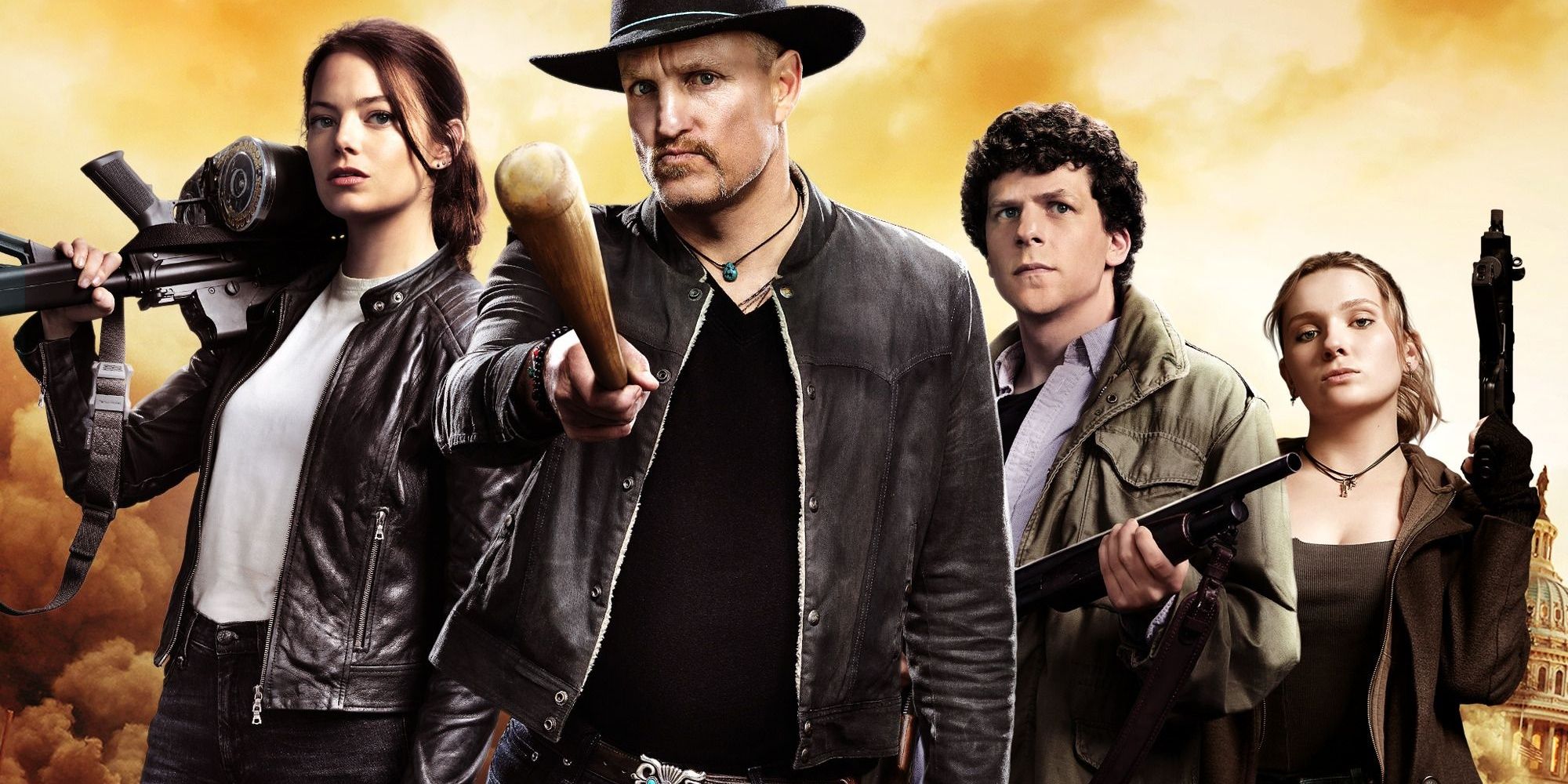When released in 2009, Zombieland became an instant modern classic, spicing up the genre of horror-comedy and introducing elements that were fresh, original, and perfectly fitted the steadily growing 'zombie' trend. The sequel, Zombieland: Double Tap, released 10 years later, desperately tried to replicate the original's magic formula but fell flat, with repetitive humor, outdated themes, and failing to add anything new to the genre that long moved on.
The 2000s boomed with successful zombie movies, from 28 Days Later to the remake of Dawn of the Dead to the zombie-vampire mix of I Am Legend. What's more, the genre of zombie horror-comedy made a glorious comeback thanks to Edgar Wright's outrageously hilarious Shaun of the Dead, masterfully delivered by Simon Pegg and Nick Frost. Since then, the 'zombie' topic exploded, with such phenomena as The Walking Dead and massive hits like Train to Busan and World War Z — to succeed, Zombieland: Double Tap needed to do something extraordinarily different, and it failed to do so.
Even though 1932's White Zombie is credited with being the first topical movie, it is George A. Romero's Night of the Living Dead that truly put zombies on the cinematic map. By the 1990s, the interest in the topic slowly died out, but successful games like Resident Evil and The House of the Dead were enough to rekindle the undead fire and prompt a new wave of fascination. The zombie movies of the time varied from dark post-apocalyptic pieces like 28 Days Later to extra-gory features like Rodriguez's Planet Terror to the confined-setting horror like REC to even animated films like Tim Burton's Corpse Bride. The trend was also fueled by the release of iconic zombie games like Left 4 Dead,Dead Space, Evil Dead, and many more. The interest in the zombie topic was clearly on the rise.
While the zombie horror-comedy genre was certainly not new, Shaun of the Dead set the new standard with its irreverent humor, lovable characters, and hilarious performances. Zombieland took the best from its British predecessor — director Ruben Fleischer openly admitted that Wright's genre-revitalizing film directly inspired him — and created something brilliantly unique and outrageously fun. The topic interest was there, the comedy barriers were broken, and the audience was perfectly ready for something just like it. Not surprisingly, Zombieland was a smashing hit on its release, receiving top reviews from critics and viewers alike.
What Made Zombieland So Successful?
Zombieland's premise is simple — four strangers band together to survive a zombie apocalypse and reach the fabled safe haven, Pacific Playland theme park. The main protagonist/narrator, Columbus (Jesse Eisenberg), tries to navigate the apocalyptic world with his 33 survival rules, faithfully guiding him through its dangers. In his travels, he runs into three other survivors: Tallahassee (Woody Harrelson) and the sisters, Little Rock (Abigail Breslin) and Wichita (Emma Stone). They join forces and form an unlikely group, united by the common goal and destination.
The core ensemble delivered an explosive performance, filled with genuine chemistry and electric sparks. Their portrayed characters were so distinct, fleshed-out, and vivid, each with their own set of motivations and stories, that they instantly captured audiences' hearts. They were clearly flawed, self-serving, but also real — which made them relatable. They grew, worked together, and, by the end of the movie, formed a weird, idiosyncratic family of sorts.
Zombieland wouldn't be the success it was without the distinct, off-the-rails humor and laid-back feel so uncharacteristic to the genre. From Tallahassee's one-liners to epic zombie smashing to graphically reinforced rules, the movie is bursting with outrageously hilarious moments. But, of course, nothing tops Bill Murray's spectacular cameo, abruptly ending with him being shot by confused Columbus. Zombieland was a perfect blend of explosive action, fresh comedy, awkward romance, and an unhinged zombie slasher — a pure delight for any genre fan.
Why Did Zombieland: Double Tap Fall Flat?
Thanks to the original's success, Double Tap could confidently rely on the fans' loyalty and excitement to fill the theaters' seats. The expectations were high for the same reason. While many critics have praised the lead actors' performance, the sequel failed to match the first installment's originality and stand out in the already crowded space.
Where the original had fresh, snarky humor, the sequel relied on the over-the-top and outdated stereotypes (like the 'blond-and-stupid' Madison or the stoned hippie Berkeley). Where Zombieland had a clear main storyline and coherent character arcs, Double Tap chose clichéd scenarios and forced developments — teenage Little Rock, rebelling against overprotective father-figure Tallahassee, and Wichita and Columbus, stuck in the growing-stale relationship. That barely allowed any room for character growth and, by the end of the movie, brought the group to pretty much where they started. The sequel was still fast-paced and entertaining, but it lacked the original's spark of unhinged creativity.
But on top of it all, Zombieland: Double Tap fell short in one crucial aspect — timing. The original rode the emerging zombie wave with the ease of Point Break's pros. It was backed up by several other strong titles but left with enough room to tell a unique story. By the time the sequel saw the light of day, the zombie trend had long peaked and gone into decline. The interest generated by The Last of Us buzz has come and gone, The Resident Evil movie series has long overstayed its welcome and made a rushed exit, World War Z has done enough damage on both gaming and cinematic fronts, and even Plants have defeated most of the Zombies.
What's more, the elements that the sequel was trying to integrate have already been done — and better — before it. The Walking Dead series has pretty much exhausted the zombie survival drama, Warm Bodies has offered a good twist on the zom.rom.com, Train to Busan has done dark, bloody carnage, and the fun and stylish zombie slashing has already been done by, well, Zombieland. By the end of the decade, the audience had pretty much seen what the genre had to offer, and, to stand out, Double Tap had to do better than just play on the old jokes and fans' fond memories.
Perhaps, if the two movies had been released back-to-back, the sequel could have offered an amusing continuation to the story, explored the then-untapped themes, and, who knows, maybe even launched a dazzling franchise. As it stands, it felt more like a misfire than a solid double-tap.








